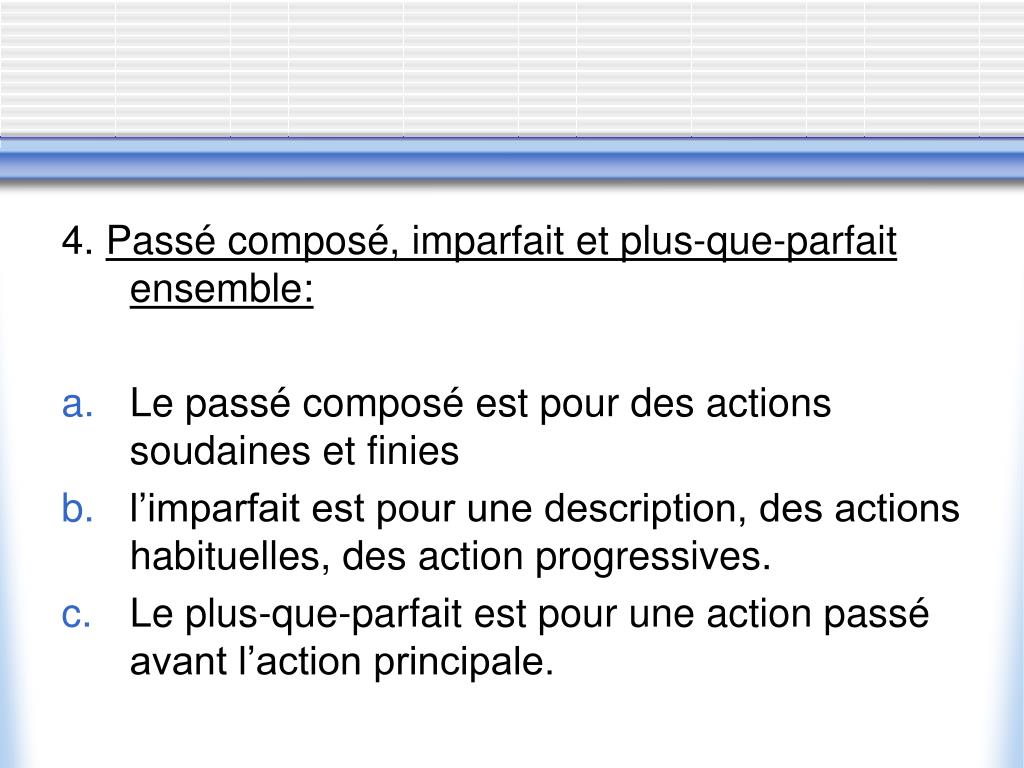

The primary time passé composé should be used is to describe distinct, singular actions that occurred in the past.Įxample: He swam yesterday → Il a nagé hier Imparfait can also be used to describe something that “used to” happen but no longer does.Įxample: We used to go to France → On allait en France. Sometimes imparfait should be understood to have either the idea of something happening in general, or that the word “often” or a close synonym is implied in the sentence.Įxample: He ran on Thursdays → Il courait le jeudi (note: le + is how habitual, weekly patterns are described in French) Other times (but not always), substituting “was” or “were” + VERB in English will be an accurate translation. If it a sentence describes how someone felt:Įxample: Tim wanted to leave → Tim voulait partir Sometimes, just a basic past tense translation into English will be sufficient.

Describing how someone or something was or behaved in the past.Continual or ongoing actions in the past.When to use imparfaitĪs we explained in their respective lessons, the general rule is that imparfait is used for However, if a photo would not fully encompass the duration of the action, it is likely to be imparfait. In other words, if you imagine a certain action, could you capture it in fully in a picture? If you can, it is likely passé composé. Think of passé composé as a snapshot and imparfait as a video. Some of their uses will instinctively make sense to most English speakers and some uses might not. What is not used identically in English are the imperfect and passé composé tenses. Plus que parfait is the “past before the past” and is used almost identically in English. It’s generally easy for English speakers to know when the plus que parfait tense should be used (for example: “Before I arrived, she had already left ”). There are several past tense options in French, including passé composé, imparfait, and plus que parfait.


 0 kommentar(er)
0 kommentar(er)
